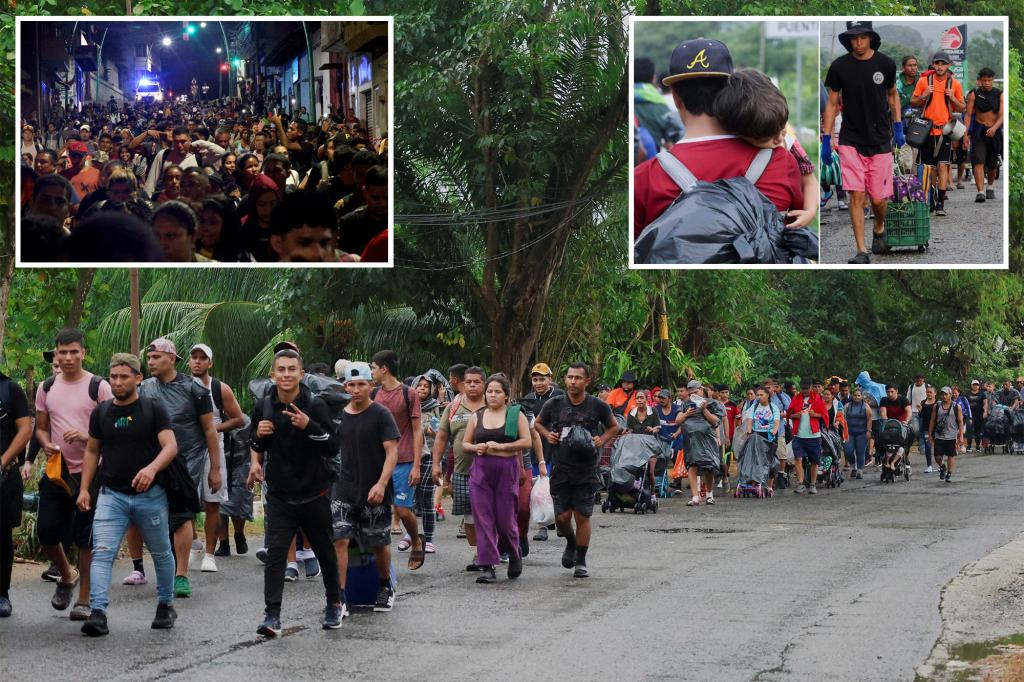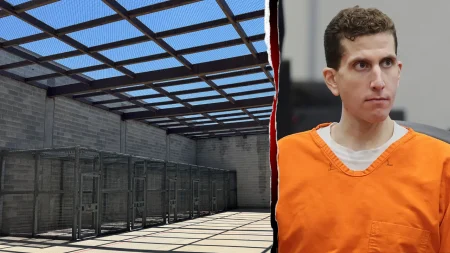The dawn of 2025 witnessed the resurgence of a familiar spectacle along the US-Mexico border: a migrant caravan, comprising approximately 2,000 individuals, embarked on a northward journey from Southern Mexico, their destination the United States. This marked the tenth such organized movement since October 2024, fueled by the impending inauguration of President-elect Donald Trump, whose hardline stance on immigration loomed large. The caravan’s members, driven by a mixture of hope and urgency, aimed to cross the border before Trump officially assumed office on January 20th, anticipating the implementation of his promised immigration crackdown. Their journey underscored the persistent challenges and complexities of migration in the region, setting the stage for a renewed confrontation between human aspirations and stringent border control policies.
The caravan’s expedited movement reflected a strategic calculation to capitalize on the remaining window of opportunity before the anticipated policy shift. Trump’s campaign rhetoric and subsequent pronouncements had signaled a stricter approach to immigration, including enhanced border security measures and increased deportations. This created a sense of urgency among prospective migrants, prompting them to undertake the arduous journey before the perceived tightening of border controls. The caravan’s formation also highlighted the ongoing humanitarian crisis in the region, as individuals and families, driven by various circumstances ranging from economic hardship to violence and political instability, sought refuge and better prospects in the United States.
The caravan’s leadership, exemplified by Luis Garcia Villagran, director of the Center for Human Dignity, emphasized the humanitarian dimension of their plight. They appealed for a compassionate and cooperative approach from both the US and Mexican governments, urging the establishment of policies that acknowledged the migrants’ human rights and provided them with opportunities for a better life. Villagran’s statement, “We are not criminals. All we are asking for is an opportunity for life,” encapsulated the caravan’s core message, seeking to portray its members not as lawbreakers but as individuals striving for a dignified existence. Their plea reflected a broader debate concerning the ethical and moral obligations of nations to address the root causes of migration and provide humanitarian assistance to those seeking refuge.
The impending arrival of the caravan and the prospect of Trump’s mass deportations cast a shadow of concern over shelters and humanitarian organizations in northern Mexico. The Rev. Francisco Gonzalez, who operated a network of 11 shelters in the region, expressed apprehension about the potential influx of migrants, anticipating an increase in demand for shelter and assistance. His shelters, already stretched thin, began preparations to accommodate the anticipated surge, highlighting the strain placed on local resources by the ongoing migration flows. The situation foreshadowed a looming humanitarian crisis, demanding a concerted response from both governments and civil society organizations to address the growing needs of vulnerable populations.
The Mexican government, under President Claudia Sheinbaum Pardo, expressed reservations about Trump’s planned mass deportations, signaling a potential point of contention between the two nations. Sheinbaum’s statement that she was “not in favor” of the deportations reflected a concern for the well-being of migrants and the potential burden on Mexico’s resources. She proposed that the United States prioritize returning non-Mexican migrants to their countries of origin and offered Mexico’s collaboration in facilitating this process. Her willingness to receive and support migrants, regardless of their nationality, demonstrated a humanitarian stance, but also hinted at the potential for diplomatic challenges and negotiations between the two countries as they grappled with the complex realities of migration.
The arrival of the 2025 caravan and the anticipation of Trump’s immigration policies signaled a turbulent period for US-Mexico relations and the broader issue of migration in the region. The caravan’s journey encapsulated the human drama unfolding at the border, with individuals and families risking their lives in pursuit of a better future. The divergent perspectives of the incoming US administration and the Mexican government, coupled with the humanitarian concerns of shelter operators and the caravan’s own leadership, highlighted the multifaceted nature of the challenge. The coming months promised to be a testing ground for both countries, demanding a delicate balancing act between enforcing border security and upholding human rights in the face of a complex and evolving migration landscape.











